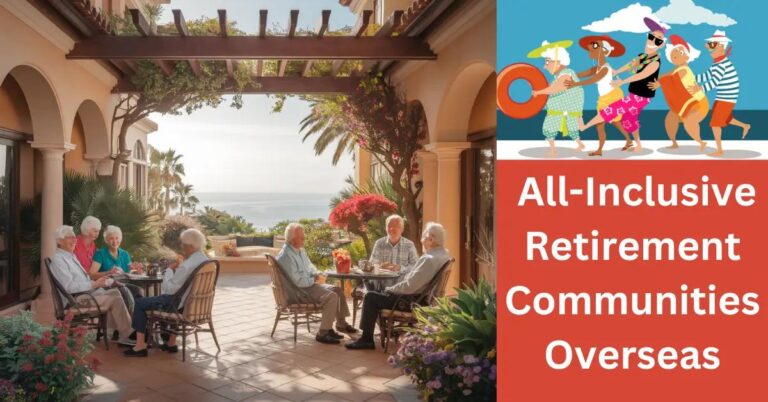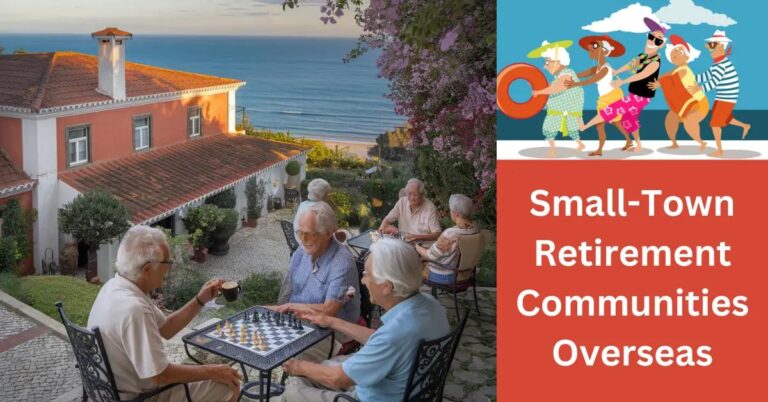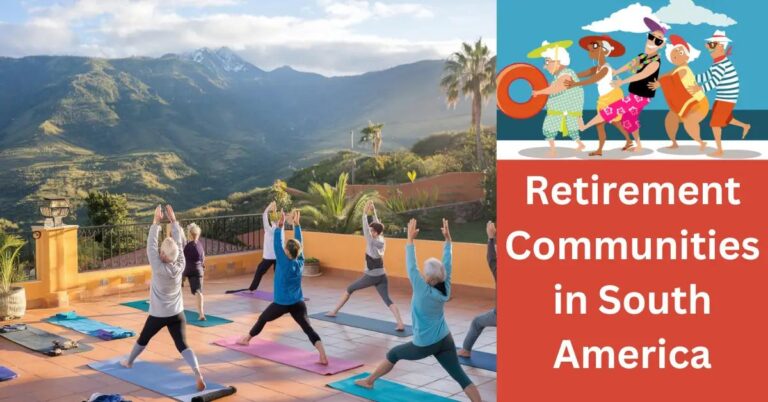TL;DR:
- Best Regions: Tuscany and Puglia offer rich culture and traditional Italian life for retirees.
- Expat Communities: Florence and Rome have strong expat support and vibrant cultural offerings.
- Cultural Activities: Seniors can engage in workshops, art, music festivals, and theater across Italy.
- Healthcare: Italy has a strong healthcare system with accessible public (SSN) and private services.
- Cost: Retiring comfortably may require $2,000 to $2,500 monthly, with costs varying by location.
- Safety and Convenience: Small towns are safe; Northern Italy is welcoming for Americans. Good public transport.
- Scenic Living: Lucca and Abruzzo are scenic, affordable options. Socializing opportunities are plentiful.
- General Appeal: Offers art, history, cuisine, and affordable living, though language can be a barrier.
If you dream of spending your golden years surrounded by art, history, and vibrant culture, there’s no place quite like Italy. Picture waking up in Tuscany or exploring the ancient streets of Rome while mingling with fellow expats. Italy offers a wealth of affordable retirement communities teeming with cultural experiences. Immerse yourself in local customs, join seniors' workshops, and discover where the best expat-friendly spots await. Ready to retire Italian style? Let’s dive in!
Where Are the Best Retirement Communities in Italy for Culture Lovers?
Italy offers a dream for culture lovers seeking a retirement community. People often ask, "Where would you recommend retiring in Italy?" The best places balance culture, beauty, and community.
Tuscany and Puglia
Tuscany and Puglia stand out for their rich culture. Tuscany, known for art and history, provides a setting filled with museums and historic sites. Puglia offers stunning coastlines and ancient towns, perfect for exploration. These regions immerse retirees in traditional Italian life.
Florence and Rome's Expat Communities
In cities like Florence and Rome, expat communities thrive. Florence, the heart of Renaissance art, offers retirees cultural depth. Expats enjoy the vibrant life and are part of cultural events. Rome, with its mix of ancient and modern life, attracts those who love history and city excitement. The expat groups here share experiences and help new arrivals. They provide a support network in familiar settings.
Cultural Attractions and Landmarks
Both Florence and Rome offer endless cultural attractions. Florence boasts the Uffizi Gallery and whole museums dedicated to timeless art. Wandering through the city's streets is like walking in a living gallery. Rome offers landmarks like the Colosseum and Vatican City, cultural experiences that never tire.
Activities and Workshops
Cultural workshops for retirees are abundant. Many choose language classes or art lessons to deeply engage with local life. Cities host frequent wine and food explorations, workshops bringing tradition to life.
Feedback from Retirees
Current retirees rave about life in these communities. They mention the joy of continuous learning and cultural engagement. The transition to retirement in these areas brings shared experiences, friendships, and lifelong learning. When considering retirement, resources like Internations provide valuable support. It’s easy to learn more and connect with fellow expats through such networks.
Retiring here is more than just moving; it's an adventure into Italy's soul. Every day can be filled with art, history, and new friends in a place that feels like home.
What Are the Cultural Activities Available for Seniors in Italy?
When we ask, "What can seniors do culturally in Italy?" the answer truly inspires. Italy offers seniors a wealth of cultural treasures to explore. One of the best ways to experience Italian culture is through cultural workshops and classes. Seniors can learn cooking, painting, or even try their hand at pottery. These activities provide a joyful way to engage with Italy's rich cultural heritage.
For those passionate about arts and history, Italy has plenty to offer. Retirees can join guided tours that explore historic cities and stunning art collections. Many tours are designed with seniors in mind, making these excursions comfortable and enriching.
Music and theater are also thriving in Italy. Seniors can enjoy the vibrant music festivals that happen throughout the year. From opera in Milan to jazz in Perugia, there's something for every taste. Additionally, many theater productions cater specifically to seniors, offering discounted tickets and easier access.
Museums across Italy host special programs just for seniors. These programs can include guided tours, interactive sessions, and even workshops that delve deep into art and history. Such initiatives make it easier for seniors to immerse themselves in the wealth of knowledge these museums hold.
Retiree group tours are another fantastic option for cultural immersion. These tours are designed to offer a rich mix of experiences, from exploring local markets to enjoying regional cuisines. Seniors can travel at a comfortable pace, with plenty of opportunities to connect with other culture lovers.
Italy offers endless opportunities for seniors to engage with its vibrant culture. From participating in artistic activities to experiencing live performances, there's no shortage of ways to enjoy life in Italy as a culture-loving retiree. If you are considering an Italian retirement adventure, it is wise to explore these options.
How Accessible is Italian Healthcare for Retirees?
Retiring in Italy offers culture and charm, but what about healthcare? Italy has a strong healthcare system. Expats can access public and private healthcare services. The public system, known as Servizio Sanitario Nazionale (SSN), provides broad coverage at low costs. But some prefer private insurance for faster service.
How much money do you need to retire comfortably in Italy? You might need about $2,000 to $2,500 a month. Living costs vary based on location. City life like Rome is pricier than small towns. Healthcare also impacts costs. Using SSN can save you money. Private insurance adds to your budget.
What are the pros and cons of retiring in Italy? Pros include quality healthcare and low housing costs. But language can be a barrier. Smaller towns may lack English-speaking doctors. However, larger cities often have multilingual staff.
Managing healthcare expenses is crucial in retirement. Enroll in SSN for budget-friendly options. Use private insurance for specific needs. Choosing prescriptions wisely helps too. Retirees find that Italy offers affordable living. Seniors enjoy savings on food and utilities.
Exploring Italy's healthcare includes understanding its quality. Public hospitals offer good care. Yet, private clinics offer shorter wait times. This dual system caters to diverse needs.
Retiring here combines art, cuisine, and history with good health services. Seniors enjoy Italy's pace and lifestyle. Affordability and healthcare make retirement here attractive. By planning well, one can balance costs and benefits. Italy is indeed a cultural hot spot and practical retirement choice.
Is It Safe and Convenient for Retirees to Live in Italy?
Retiring in Italy offers a mix of safety and charm. Safety for retirees in Italy is crucial. Most parts of Italy, especially the small towns, are quite safe. I suggest always checking local crime rates before choosing a neighborhood. Also, try connecting with locals to get neighborhood reviews.
A common question is: Is Northern Italy a good place for Americans to retire? Yes, it is. Many Americans feel welcome in Northern Italy, enjoying its culture and safety. Towns like Milan and Turin provide a rich cultural scene and strong expat networks.
Understanding the Italy retirement visa process is important. The visa requires proof of financial stability and health insurance. This means showing enough money to live comfortably without working. Also, having insurance is a must.
Expat support groups in Italy can help with the transition. These groups offer advice on living in Italy and host events to connect retirees. You may find that expat forums online are very helpful in sharing experiences and giving advice.
Transportation in Italy is great and travel is smooth. Trains are fast and connect major cities. In towns, buses or bikes are reliable ways to get around. It's easy to explore Italy, even if you don't own a car.
One often wonders, Where are the most American expats in Italy? You'll find many in cities like Rome and Florence. These cities have vibrant expat communities and support systems for new arrivals.
Personal safety tips include securing your home and being aware of your surroundings. Learn some Italian phrases for basic communication. It helps you feel more confident and connected.
In conclusion, while Italy presents a wonderful retirement opportunity, planning and understanding local life ensure it's both safe and convenient.
Where Can Retirees Find Scenic and Social Living Options in Italy?
When I think about scenic retirement locations in Italy, the charming town of Lucca comes to mind. Surrounded by old city walls, Lucca offers art, culture, and delightful cafes. It's one of those senior-friendly Italian towns where you can live well without a hefty price tag.
But you might ask, "Where is the cheapest place to live in Italy for retirees?" Look no further than Abruzzo. Here, you find a mix of mountains and beaches at an affordable cost. The picturesque Gran Sasso mountains and blue Adriatic Sea views make it a dream spot.
Now, you might wonder about socializing opportunities for Italy's seniors. In towns like Siena, you find vibrant piazzas where locals gather. Communities host festivals and events, perfect for meeting people and making new friends. These places thrive with activities and clubs tailored for retirees.
Retiring in Italy has its pros and cons. Advantages include beautiful landscapes and rich history. You can immerse yourself in local culture and cuisine. But, the language barrier might pose a challenge at first. However, learning a bit of Italian can help ease this transition and connect with locals.
For those seeking budget-friendly options that still provide a high quality of life, towns like Arezzo offer an excellent choice. Arezzo, with its Renaissance art and antique fairs, offers cultural richness without breaking the bank.
Consider the remarkable case of retirees who moved to Lake Garda. They enjoy stunning lake views and a close-knit community. Many have integrated seamlessly, participating in local wine tastings and gardening clubs.
With its scenic beauty and social living options, Italy stands out. Whether you favor quiet lakesides or lively towns, there's a perfect retirement spot waiting for you. If you'd like to explore more about retiring in this extraordinary country, check out this inclusive guide for further insights.
Conclusion
Italy offers retirees rich culture and vibrant communities. Tuscany and Puglia provide cultural immersion, while Florence and Rome boast active expat communities. Dive into arts, history tours, and music festivals designed for seniors. You’ll find affordable healthcare and a warm welcome in scenic Italian towns. Experience the safety and convenience of living with supportive expat networks. Embrace Italy’s beauty and culture for a fulfilling retirement.







